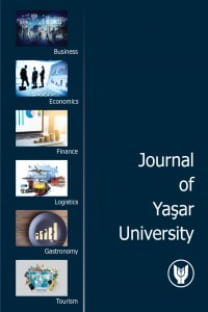RELIEVING BOSNIA FROM THE ORBIT OF DYSFUNCTIONAL CONSOCIATIONALISM: REASONING UNDER THE LIGHT OF LOCAL COMMITTEES EXPERIENCE IN KOSOVO AND ETHNOCOMITOLOGY
Bosna, Kosova, Makedonya, konsosyonal system, etnik patronaj, etnokomitoloji
RELIEVING BOSNIA FROM THE ORBIT OF DYSFUNCTIONAL CONSOCIATIONALISM: REASONING UNDER THE LIGHT OF LOCAL COMMITTEES EXPERIENCE IN KOSOVO AND ETHNOCOMITOLOGY
Bosnia, Kosovo, Macedonia, consociations, ethnic patronage, ethnocomitology,
___
- Bakvis, Herman. (1985). “Structure and Process in Federal and Consociational Arrangements,” Publius, 15(2), Federalism and Consociationalism: A Symposium, 57-69.
- Belloni, Roberto. (2001) “Civil Society and Peacebuilding in Bosnia Herzegovina”, Journal of Peace Research, 38(2): 163-180.
- Bieber, Florian. (2004). “Power Sharing as Ethnic Representation in Postconflict Societies: The Cases of Bosnia, Macedonia, and Kosovo”, Alina Mungiu-Pippidi and Ivan Krastev (eds.), Nationalism After Communism, Central European University Press.
- Bogaards, Matthijs. (2004). “Electoral Systems and the Management of Ethnic Conflict in the Balkans,” Alina Mungiu-Pippidi and Ivan Krastev (eds.), Nationalism after Communism: Lessons Learned, Central European University Press.
- Elazar, Daniel J. (1985) “Federalism and Consociational Regimes”, Publius, Vol. 15, No. 2, Federalisms and Consociationalism: A Symposium.
- Horowitz, Donald. (2006). “Constitutional Design: An Oxymoron”, Ian Shapiro and Stephen Macedo, Designing Democratic Institutions, New York, London: New York University Press.
- Ljiphart, Arend. ( 1979). “Consociation and Federation: Conceptual and Empirical Links” Canadian
- Journal of Political Science, 12(3): 499-515. Ljiphart, Arendt. (1997). ‘Self-determination versus Pre-determination of Ethnic Minorities in Power
- Sharing Systems’ Will Kymlicka (ed.) The Rights of Minority Cultures, Oxford: Oxford University Press. Mandacı, Nazif. (2003) “Macedonia: Shadow of Patronage over Inter-Ethnic Relations”, Dokuz Eylul University, Journal of Social Sciences Institute, 5(1): 85-93.
- Mandacı, Nazif. (2005). “Turks of Kosovo and Protection of Minority Culture at the Local Level”, Perceptions, 9(2): 59-74.
- Mandacı, Nazif. “Turks of Macedonia: Travails of the Smaller Minority”, Journal of Muslim Minority Affairs, 7(1): 5-23. Mearsheimer, John. J. (2008). “The Only Exit From Bosnia”, New York Times, October 7, 1997, available online on September 4, 2008, http://mearsheimer.uchicago.edu/pdfs/P0005.pdf .
- Mertus, Julie. (1999). Kosovo: How Myths and Truths Started a War, Berkeley, Los Angeles, London: University of California Press.
- Noel, Sid. (2005) Introduction, Sid Noel (ed.), From Power Sharing to Democracy: Post Conflict
- Institutions in Ethnically Divided Societies, Montreal, PQ: McGill Queen’s University Press. O’Leary, Brendan. (2005). “Debating Consociational Politics: Normative and Explanatory
- Arguments”, Noel Sid (ed.), From Power Sharing to Democracy: Post Conflict Institutions in Ethnically Divided Societies, Montreal, PQ: McGill Queen’s University Press. Pickering, Paula. (2003). “The Choices that Minorities Make: Strategies of Negotiation with the Majority in Post-War Bosnia-Herzegovina” Dimitris Keridis, Ellen Elias-Bursac, and Nicholas
- Yatromanolakis, (eds.), New Epproaches to Balkan Studies, The Ikpa-Kokkalis Series on Southeast Europan Policy, Volume 2. Stroschein, Sherrill. (2003). “What Belgium can Teach Bosnia: The Uses of Autonomy in Divided
- Houses”, Journal of Ethnopolitics and Minority Issues in Europe, 3, online available at: http://www.ecmi.de/fileadmin/downloads/publications/JEMIE/2003/nr3/Focus3-2003_Stroschein.pdf . (last access February 28, 2013).
- ISSN: 1305-970X
- Başlangıç: 2006
- Yayıncı: Yaşar Üniversitesi
Editorial Board / Editör Kurulu
MORE EFFECTIVE MANAGEMENT PERSPECTIVE BY USING DIVERSITIES: IN THE ARMY EXAMPLES
Letter From the Editor / Editör Mesajı
SÜRDÜRÜLEBİLİRLİK PERFORMANS KARNESİ
About the Journal / Dergimiz Hakkında
BİLGİ EKONOMİSİ VE TEKNOLOJİ POLİTİKALARI: GENEL BİR DEĞERLENDİRME
2011 UNIVERSIADE KIŞ OYUNLARININ ERZURUM EKONOMİSİ ÜZERİNDEKİ ETKİLERİ: BİR UYGULAMA
Ş. Mustafa Ersungur Merter AKINCI
FARKLI MİLLETLERDEN TURİSTLERİN TÜRK MUTFAĞINA İLİŞKİN GÖRÜŞLERİNİN SAPTANMASI ÜZERİNE BİR ÇALIŞMA
NAKİT DÖNGÜSÜNÜN FİRMA KÃRLILIĞINA ETKİSİNİN SEKTÖREL ANALİZİ
